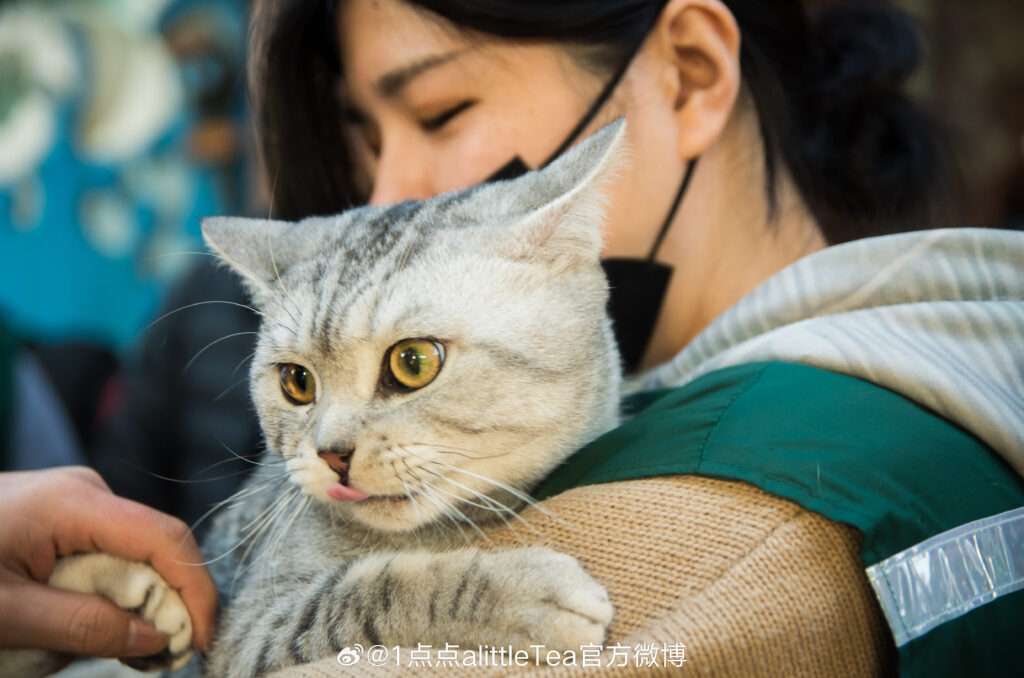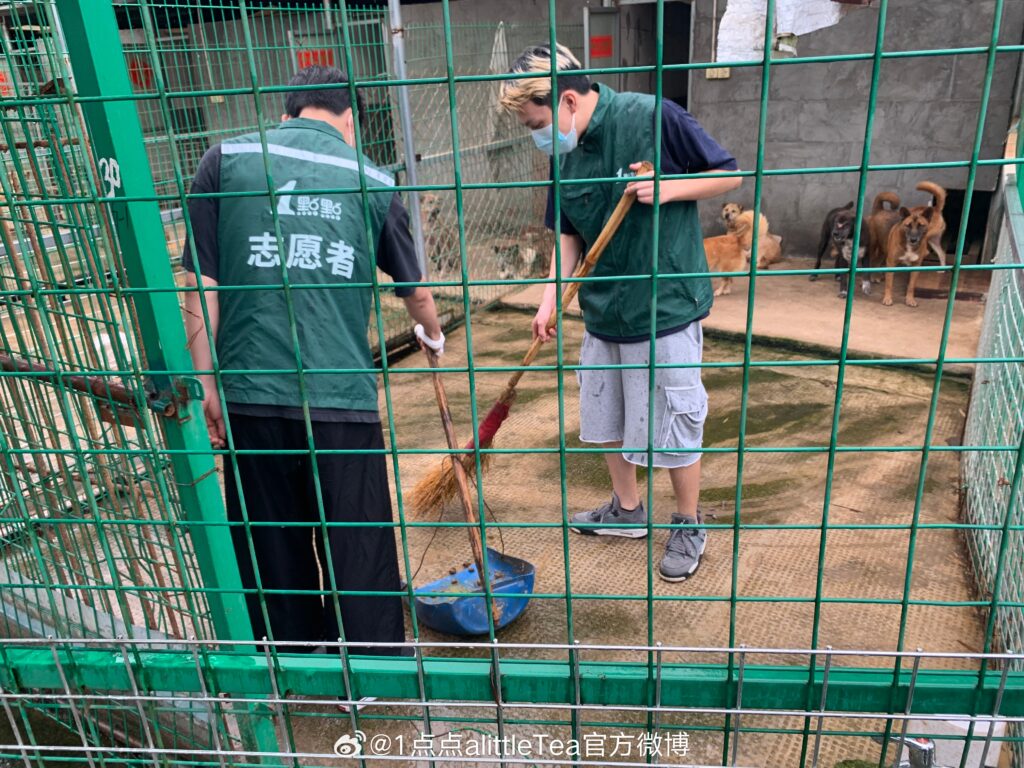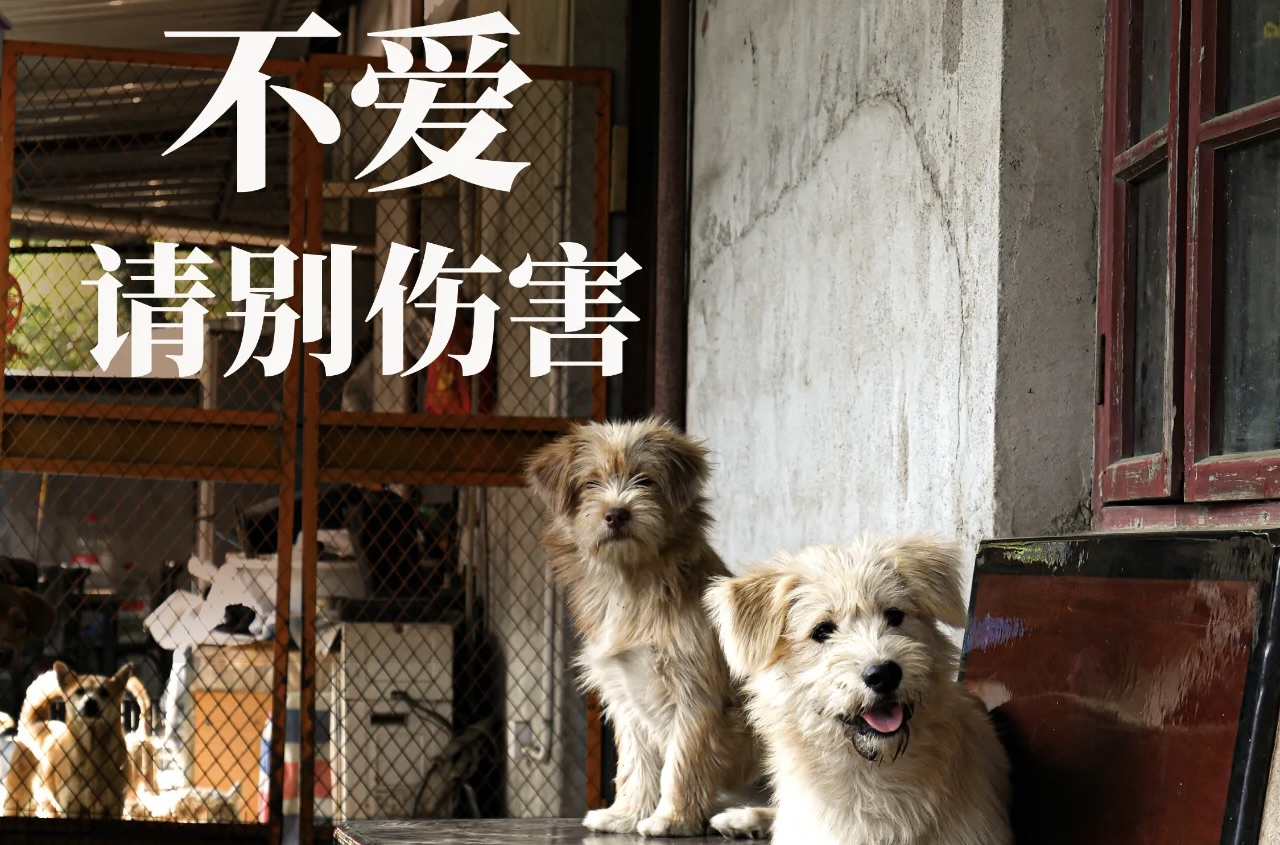On the 23rd of October, with a striking main slogan ‘不爱,请不要伤害’ (‘Don’t harm them even if you don’t love them’), Chinese tea brand Alittle Tea announced a series of events focusing on stray animal care. These include adoption events, cleaning of animal shelters, cat kennel DIY events, as well as donation of pet food and neutering funds. These events will be held in over 20 cities across 13 provinces. Alittle Tea pledges to continue these efforts on an annual basis.
In harm’s way
What was noteworthy about the Alittle Tea announcement was its timing – it came in the aftermath of a heated social debate on pets and stray animals.
The discussion started after a two-year-old girl in Chengdu was seriously injured after being mauled by an off-leash Rottweiler on October 16th. The owner of the Rottweiler was later arrested. Following the incident, a swift crackdown on dogs, both strays and undocumented pets, was conducted by local authorities across several provinces. These directives mostly meant rounding up and capturing, but killings were also reported across the country, sometimes unauthorised. Reports of poisoning of pet food packages during shipping also prompted pet food sellers to switch to plain packaging for safety in transit.



A heated online discussion on whether to cull stray animals, especially dogs, followed. Actor Yang Di and actress Cya Liu Yase voiced support for animal rights and called for restraint, but both were temporarily banned from posting on Weibo. Interestingly, Yang also used the phrase ‘don’t harm them even if you don’t love them’.
Interestingly, Yang also used the phrase ‘don’t harm them even if you don’t love them’
It is imaginable, therefore, that Alittle Tea faced pressure in directing its campaign message towards cull-supporters and animal haters. The campaign is framed as a direct response towards calls for mass killing and could have faced strong backlash online for this unusual strategy. But the comments on both Xiaohongshu (RED) and Weibo were supportive, with many users eager to support the brand for their effort. Pet food brand John’s Farms also released a statement condemning cruelty against stray animals and announced ‘Natural Love’, a network of brands, shelters, shops and consumers that work together for the welfare of stray animals.
A booming market
Before the incident, stray animal-related ESG marketing was a safe bet for brands, pet-related or not. According to Analysys, with empty nesters and DINK (Dual Income, No kids) families on the rise, pet owners have become a major consumer demographic. Data shows that the pet-related market in 2023 will reach 392.4 billion RMB, with 60% of it being pet food. 60% of respondents from Analysys’ data consider pets to be ‘intimate family members’. Analysys conclude that with pet numbers and the willingness to spend from owners on the rise, the market will continue to grow.
With the pet economy booming in China, there has been a trend of stray animal-related corporate social responsibility (CSR) campaigns in the past 2 years, from brands both pet-related and not. Meituan, Coca-Cola, Lenovo, Tmall and SAIC Volkswagen had all worked with pet-specific charities or NGOs for stray rescue and adoption, hoping to capitalise on the trend. Pet-friendly cafes and restaurants from Pizza Hut, Starbucks and Cha Panda also held events for strays. The sportswear brand 361° released dog-walking trainers this year. Collaborating with pet product brand Crazy Dog, the trainer came in a mid-autumn gift box with a dog water bottle and moon cakes for dogs, along with a donation to stray dog rescue.
Pet-related companies, such as pet food brands, are naturally on the forefront of stray-related CSR campaigns. Earlier this month, freeze-dried pet food maker Partner Pet took over a wall in a metro station in Hangzhou with an interactive installation. Visitors can ‘high five’ with a button set in a paw-shaped background. With each interaction, the company will donate 10 grams of pet food to a stray shelter. Incidentally, Partner Pet extended its wall installation in Hangzhou soon after the online outcry.
What happens next?
But what does this all mean for companies that wish to continue their CSR marketing in China? Is animal welfare, especially of strays, no longer a failsafe tactic for brands to leverage the pet economy?
Arguably all is not lost. First of all, there is no overwhelming support for culling, let alone calling for cruelty. According to a survey, 33% of respondent support dog culling, while 47% calls for punishment of owners instead of dogs, in the event of attacks. Some local authorities are taking less hard-line stances. Hohhot, Inner Mongolia promised not to put down rounded-up stray dogs, while provinces like Guizhou, Sichuan and Anhui handed out free leashes to promote ‘civilised’ dog-keeping. Indeed, one of the key objectives for these crackdowns are to get the strays off the streets. Ideally, as Hohhot is proposing, the rounded-up canines should end up in shelters. What Alittle Tea is doing is appealing to the public about these shelters and rescue efforts.
Pet-related CSR campaigns need to pay close attention to localisation of their messaging in different regions
Secondly, as in the past few years, the stray-related campaigns are concentrated in urban areas and aimed at cosmopolitan and younger audiences, many of whom are already pet keepers. According to KuRunData’s report, pet keepers in China are younger, with more than half of them between 25-34 years old, more than 60% of them have university education or above, with most having high-paying office jobs. About 47% of them live in tier-1 or new tier-1 cities and are concentrated in affluent provinces/cities such as Jiangsu, Sichuan, Beijing and Guangdong. In this sense, pet-related CSR campaigns need to pay close attention to localisation of their messaging in different regions, as the same message might provoke different responses from different demographics.









